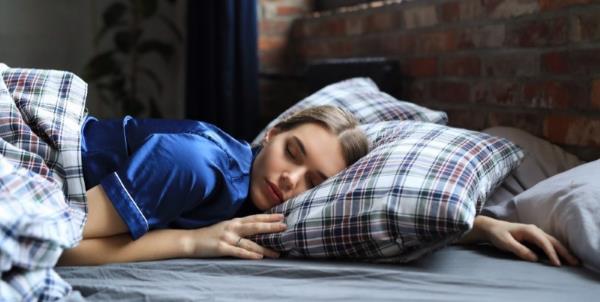How Bad Is It Really to Eat Sugar Before Bed?
Feb 12, 2024 By Madison Evans
Natural sugars are known as Carbohydrates in food. Mostly, they are healthy for your body if taken in a controlled manner. That can't be said for table sugar or the added sugar we eat from snacks, bakeries, etc. These can affect your health.
While most of us take care in consuming our daily sugar amount, we might not be as vigilant when it comes to eating sugar before bed. In short, it can cause restlessness, excite you, and can disrupt your deep sleep. So, is it bad to eat sugar before bed? Let's discuss how you can curb your late night sugar cravings.
Why is Sugar Before Bed Bad for Your Sleep?
Sugar is a concentrated form of carbohydrates that you typically include in your daily diet. It energizes you and gives you all the energy to get your body in motion. Imagine having the same energy when going to bed. Your body isn’t ready to sleep with the sugar it must consume and the energy it needs to dissipate.
Taking a single teaspoon of sugar before bed requires at least an hour for your body to digest it. Once digested, your body needs an hour to return to its normal state. Your body is now ready to work with all the sugar it digested.
Let's go into more detail about why is it bad to eat sugar before bed.
The Cause of Inflammation
Intaking sugar can cause chronic inflammation, and your body is prone to many common conditions, some of which are serious. For example, obesity, heart disease, and diabetes are all conditions that link their causes to inflammation of your organs.
It can also cause sleep apnea because your body is now in a fighting response if you tend to chronic inflammation. It can cause your body to stay awake longer.
Reduced Deep Sleep
When you take sugar before bed, your blood sugar level rises. With that rise, your body turns on its ready-to-work mode. Even if you go to sleep, it will arouse you from deep sleep because you still think you need to get up. Your sleep quality will be diminished as sugar in your blood has caused your body to wake from deep to light sleep.

Weight Gain
When you are up, your body uses sugar for energy, and whatever isn’t used over time will deposit as fats. But gaining fat when regularly working or moving about takes quite a long time. It is much faster when you are sleeping, as your body doesn’t know where to utilize this sugar energy now that you are asleep.
Though there isn’t concrete research on whether sugar before bed can add to weight gain, any added sugar will convert into fats if unused.
How to Reduce Intake of Sugar Before Bed?
Here are some quick tips that you can apply to reduce your sugar intake before going to sleep. These are mild practices you can easily use in your daily routine, so start with a few of these and increase as you go along.
Portion Sizes – Reduce not just your food portions but also your sugar intake. This method will allow you to have fewer late night sugar cravings.
Natural Sweeteners – Start adding natural or unprocessed sweeteners like brown or molasses sugars to have less reliance on added or refined sugar.
Fast Foods – Stop taking or at least reduce eating fast food before going to sleep. Any amount of added sugar, even if it's carbs, can increase your sugar cravings.
Whole Foods – Start eating as much natural or whole foods as you can or can afford. Start minimizing processed food from your diet.
Low Sugar Sauces – If you love sauces with your dinner and food, try to make your own at home. If you don’t have the time or expertise to do that, at least start using low-sugar sauces.
Plain Cereals – You might have hunger pangs late at night, so instead of giving your body sweetened cereals for a quick bite, give it plain cereals. The requirement is to reduce sugars as much as you can.
Fresh Fruit – When craving sugar before bed, grab a bit or slice of fruit and shift your body to them.
How Much Sugar is Good for Sleep?
Our bodies need sufficient nutrients and energy to rejuvenate our energies and repair during our sleep. However, you can have good sugars like from fruits and vegetables. However, if you crave added sugars, you can still include some amount.
According to WHO studies, you can include added sugars, but it shouldn't increase 5% of your daily calorie intake. So, for example, you know you usually take 2,000 calories daily for a healthy meal. Now you can easily add 100 sugar calories to your diet and will be sufficiently ok with it.

This isn’t that much, and you still can give in to some of your cravings. A typical tomato sauce or ketchup serving is 20g. Each of these servings has added sugar of only 25 calories. So, each day, you can easily take one serving for each meal and still sleep well.
Final Words
It might be surprising to read that you can quickly reduce your daily sugar intake because there are many alternatives. The best part is that these alternatives are delicious and healthy, too. By following some of our tips, you can easily reduce sugar before bed and enhance your sleep cycle.
Finally, keep in mind it is just the cravings, and your body doesn't require any added sugar for survival. It can thrive without them, so as long as you give slow carbs to digest properly and gain healthy energy.







